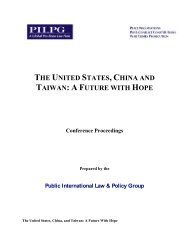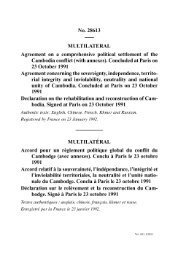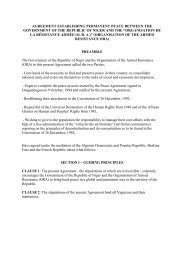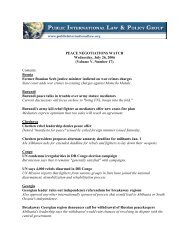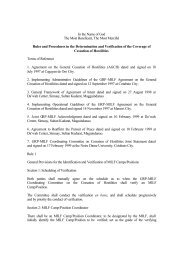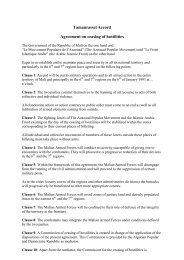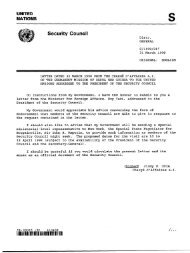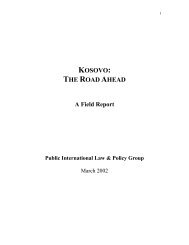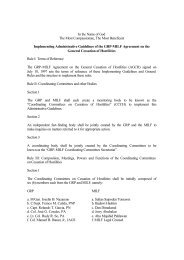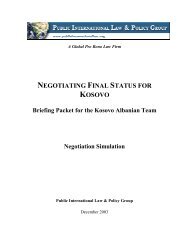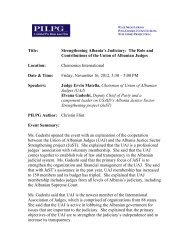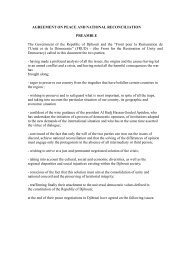Vol. 8 Issue 7 - Public International Law & Policy Group
Vol. 8 Issue 7 - Public International Law & Policy Group
Vol. 8 Issue 7 - Public International Law & Policy Group
You also want an ePaper? Increase the reach of your titles
YUMPU automatically turns print PDFs into web optimized ePapers that Google loves.
"As for the content of the documents, they do not take into account the will expressed by the<br />
Transdniestrian people in referendum 2006.<br />
Judging by the draft law and declaration, the Republic of Moldova continues to ignore<br />
Transdniestria as an equal partner in the negotiations," he said.<br />
At the same time, Transdniestria is ready to develop relations with Moldova on principles of<br />
amity, neighborliness, non-violence, mutual respect and equality, he said.<br />
Apart from Moldova and Transdniestria, the settlement negotiations involve guarantors<br />
(Russia and Ukraine), an intermediary (the OSCE) and observers (the European Union and<br />
the United States).<br />
Some Transdniestrian officials banned from entry into EU<br />
Interfax news Agency, 2/17/09<br />
The EU Council of Ministers extended by one year the ban for Transdniestrian leadership to<br />
enter the European Union, up until February 2010.<br />
The list includes 19 persons similarly to the last year including the president of the<br />
unrecognized republic Igor Smirnov and his two sons, the head of the customs committee<br />
Vladimir Smirnov and the leader of the Patriotic Party of Transdniestria Oleg Smirnov, the<br />
EU mission to Chisinau said on Tuesday.<br />
The list includes state officials who are responsible for the absence of progress in<br />
Transdniestrian settlement and for organizing a campaign for closing down Moldovan<br />
schools that have used Latin alphabet and Moldovan programs, the EU said.<br />
The EU adopted restrictions against Tiraspol leaders in late February 2003 and has extended<br />
them annually. The ban is explained by "the reluctance of the regime to support the efforts of<br />
the international community on Transdniestrian settlement," the EU said.<br />
The ban was supported by the U.S. and new EU members.<br />
In response to EU actions, Transdniestria banned the Moldovan leadership from entering<br />
Transdniestria from February 2003. Following the meeting with Igor Smirnov in April 2008,<br />
Moldovan President Vladimir Voronin promised to appeal to the EU that it should lift<br />
restrictions against Transdniestrian leadership if the negotiating process intensified. Smirnov<br />
said he had sent this appeal to the EU and Transdniestria had lifted a similar ban for the entry<br />
of Moldovan leaders to Transdniestria.<br />
Return to Table of Contents



